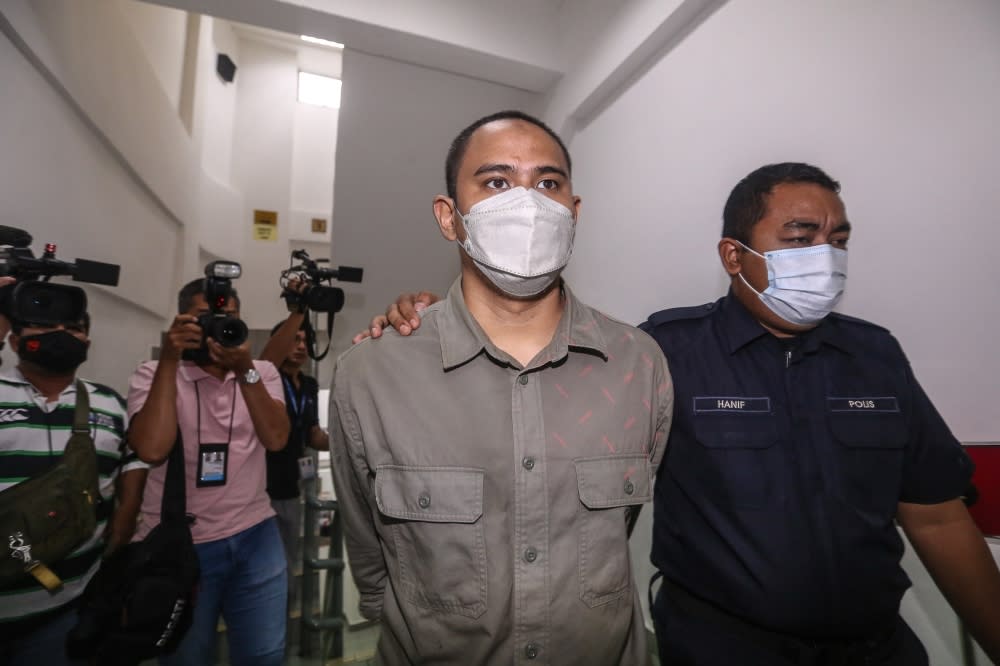Magistrate rejects guilty plea and orders trial for first Malaysian charged with stalking

SHAH ALAM, Dec 20 — Mohamad Safiq Rosli, 37, is the first man to be charged with stalking in Malaysia and was supposed to be sentenced at the Magistrate’s Court here today after he changed his plea to guilty last week.
However, the case took a twist when Magistrate Sasha Diana Sabtu rejected his guilty plea and ordered a full trial to be held instead.
“The court cannot accept this guilty plea,” she said in delivering her decision.
She set a one-day trial on January 17, 2024 and added that a verdict will be delivered on the same day, if possible.
Bail was offered at RM20,000 but as the accused’s family was unable to post it, Safiq will be detained at the Sungai Buloh Prison until trial.
Lawyer Firthril Hakim Ab Jalil, representing the accused, told the court when the hearing resumed after the lunch break that he plans to enter a defence of insanity at the trial, a reversal from his earlier stance.
“We would like to opt for the plea of insanity, upon the orders of my client.
“At the end of trial, we are going for Section 347 of the Criminal Procedure Code,” he said.
Section 347 states that the court will grant an acquittal if it is satisfied that the accused was unable to know the nature of the act and that it was wrong or unlawful due to unsound mind at the time it was committed.
Before the lunch break, the defence lawyer told the court that his client would not plead insanity.
“We are not pleading for insanity,” he said after the magistrate made the order for a full trial.
He had argued that his client’s guilty plea should be allowed to remain when the prosecution sought a full trial.
The defence lawyer said that Safiq should undergo rehabilitation as soon as possible instead of a lengthy trial.
At the start of hearing today, Deputy Public Prosecutor Zilfinaz Abbas pushed the court for a full trial.
She argued that the accused could be fully acquitted by claiming insanity.
The magistrate noted that the medical report from the psychiatric evaluation she had previously ordered Safiq to undergo when he was first charged in August, said the accused may have been of unsound mind when the act was committed.
She noted that this would result in the defence pleading insanity in the trial, which was the prosecution’s stand at the start of this morning’s hearing.
National news agency Bernama reported on December 15 that Safiq had pled guilty after being certified fit to plead and fit for trial by a doctor.
He was supposed to be sentenced yesterday, but it was postponed due to procedural irregularities.
Safiq, who worked as a graphic designer, was first charged with stalking photographer Acacia Mardiana Daud, 31, on August 10 under Section 507A of the Penal Code.
He originally pled not guilty to the accusations that he harassed Acacia online through three messages on X – formerly Twitter – in which he expressed his love for her.
Back then, the magistrate ordered Safiq to undergo a psychiatric evaluation at Hospital Bahagia in Tanjung Rambutan, Perak .
Before his charging, Safiq was supposed to appear in a court in the United Kingdom to be charged there, however he breached his bail and fled back to Malaysia.
His victim told The Star in an interview published on the same day as his charging, that she had been stalked by the man since 2016, and that the latter had even stalked her all the way to the UK when she was studying there after failing to find her at her home in Malaysia.
Section 507A of the Penal Code criminalises stalking, whether in person or online and came into force on May 31.
The new anti-stalking law can be applied after there is more than one incident of following or tracking physically or online, communicating or attempting to communicate, loitering around the place of business or home of a person, giving or sending anything through any medium to a person.
However, it must be coupled with the intention of causing or knowing to cause distress, fear, or alarm to the person’s safety.
Those convicted under Section 507A can be sentenced to jail for a maximum of three years, a fine, or both.



